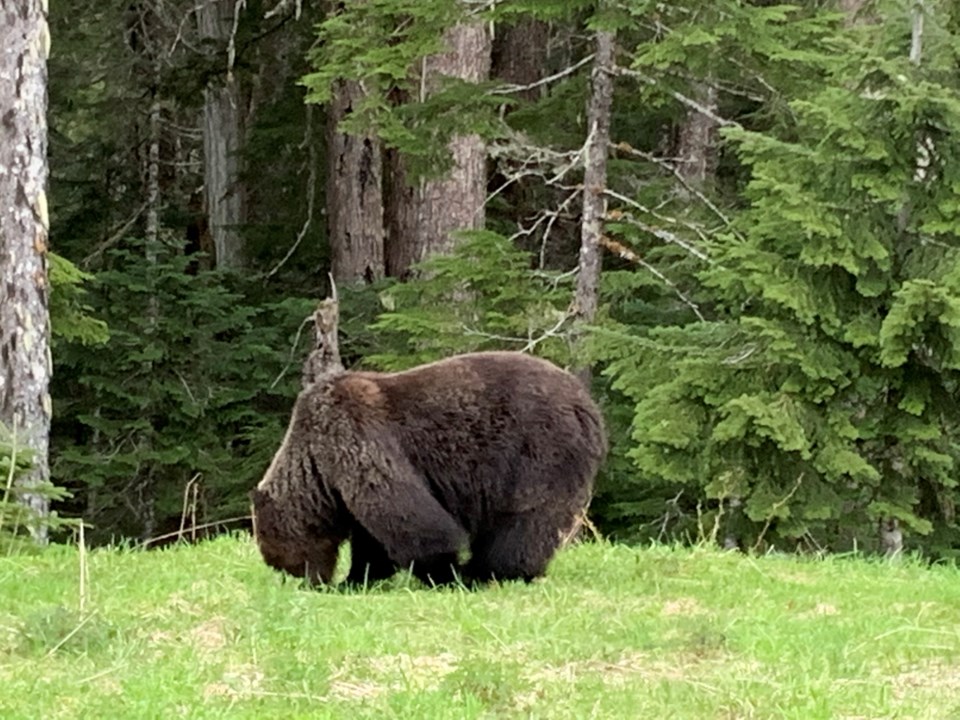Spotting a grizzly bear in your backyard might understandably come as a shock, but recent reports of a grizzly sighting in a Whistler residential area wasn't a surprise for Sea to Sky conservation officers, said Sgt. Simon Gravel.
Though Gravel admitted "it is a bit unusual" to see grizzlies in the valley—"long-term Whistler residents can confirm that the presence of grizzly bears is very rare," he said—wildlife experts know Whistler serves as a corridor for a growing population of grizzly bears passing through the area, particularly during the last few years.
"We were expecting to see them in the Whistler area these coming years and now it's happening," Gravel explained. "We confirmed with the wildlife biologist as well, but he was expecting grizzly bears to be more active lower in the valley this year because of the delayed snow pack. As you know, the season's been unusually cool and there's still a lot of snow in the alpine, so good vegetation; good natural food is at the valley bottom. And that's why we're seeing so much bear activity lower down."
Gravel said the grizzly bear reported on Tuesday, June 14 was seen in Whistler Cay, on a property bordering the green space. The bear was feeding on grass, and aggressive behaviour was reported, he explained.
The sighting comes following south of Whistler earlier this month.
The conservation officer advised locals to "not be too curious," avoid making any attempts to locate the bear and to give it lots of space in the event of a sighting.
"They're not as tolerant to humans, perhaps as a black bear ... they need space and should not be approached at any time," Gravel said. "This particular bear we're just monitoring closely, and we hope that it will pass through very soon and seek some natural [food sources] soon further up in the mountains."
With that in mind, any aggressive behaviour or bear-related public safety concerns should be reported to the Conservation Officer Service's RAPP line (1-877-952-7277), Gravel noted. The sighting can also serve as a reminder to make sure any potential wildlife attractants are locked away; a message conservation officers are working with the Resort Municipality of Whistler to get out.
"The well-being of the grizzly is at risk if this bear finds a non-natural food source around Whistler," Gravel explained, "so it is very critical that this grizzly bear just feeds on green space in the surrounding [areas] of Whistler and does not [learn to view] our residential area as a potential food source, and start seeking out garbage. That would be a very unfortunate situation."
"But," Gravel added, "I know that the Whistler community is really on top of it, they're very good and I'm optimistic that this bear will not find any garbage."




